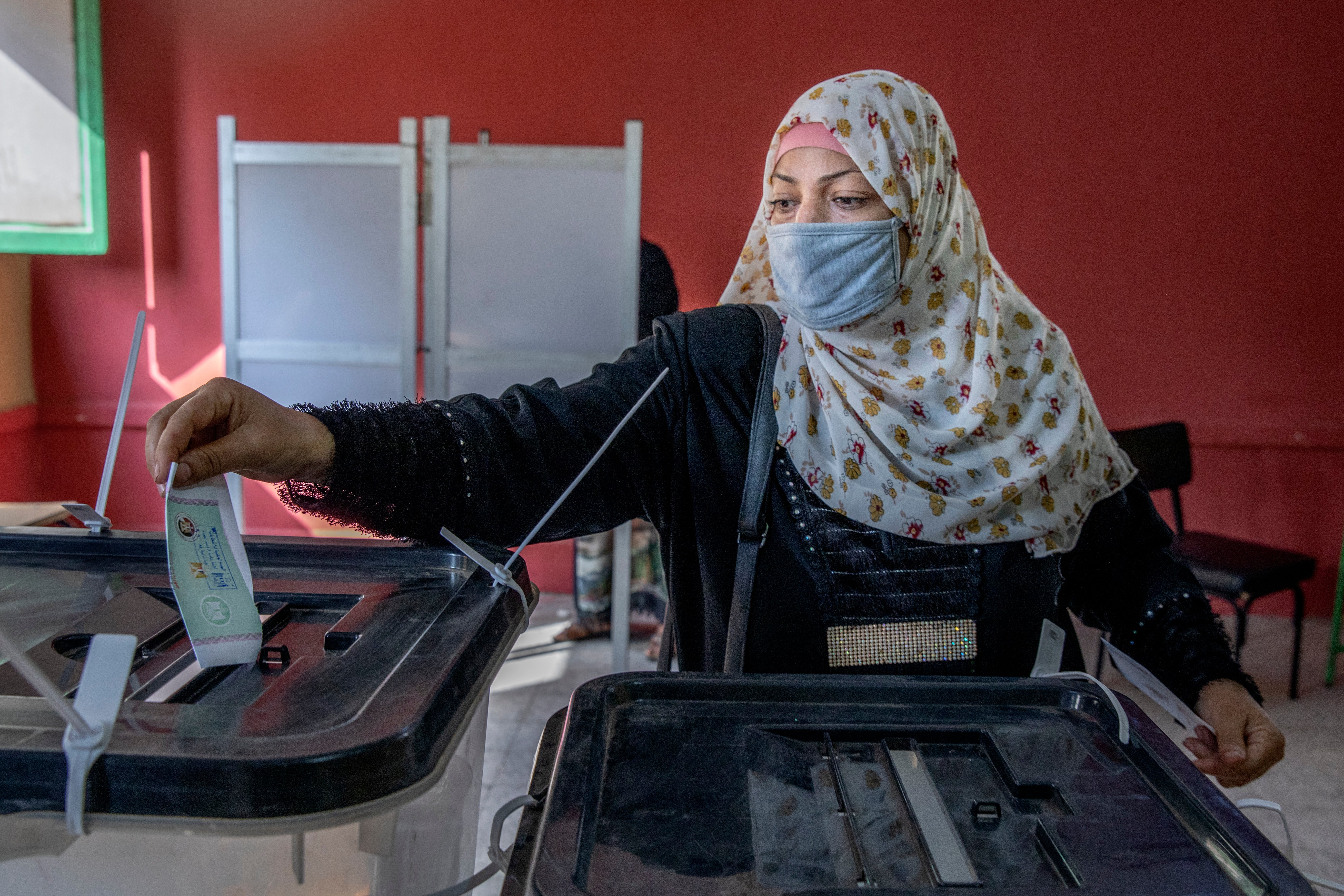Egyptians vote in second day of parliamentary elections
Egyptians on Sunday trickled into polling stations on the second day of voting for the country’s parliamentary election amid a slight uptick in daily recorded coronavirus cases

Egyptians on Sunday trickled into polling stations on the second day of voting for the country’s parliamentary election amid a slight uptick in daily recorded coronavirus cases.
The first stage of the vote for the lower chamber of parliament began a day earlier in 14 of Egypt’s 27 provinces, including Giza and the Mediterranean port city of Alexandria.
The second stage the vote is scheduled on Nov. 7-8 in the country’s 13 other provinces, including the capital Cairo and the Sinai Peninsula. The voting concludes with runoff elections.
The vote is likely to produce a toothless House of Representatives packed with supporters of President Abdel-Fattah el-Sissi that further rubber-stamps his policies, leaving the former military general with almost unchecked powers.
A total of 568 seats in the lower chamber are up for grabs, with more than 4,000 candidates running as individuals competing for half of the seats. Prominent, wealthy government-affiliated power brokers have an advantage.
The other half of elected seats in the chamber are reserved for the more than 1,100 candidates running on four party lists. El-Sissi will name 28 seats, or 5%, bringing the total number of seats in the lower chamber to 596.
Some 63 million voters are eligible to vote in the Arab world's most population nation. The new chamber is expected to hold its inaugural session shortly after final results are announced in December.
The election is taking place as Egypt faces a slight increase in coronavirus cases, with authorities warning that a second wave of the pandemic lies ahead.
Face masks are mandatory at polling centers, which were disinfected before and during the vote, authorities said.
Authorities urged Egyptians to take part in the vote in order to show a high turnout and lend legitimacy to the election.
Only 14.23% of voters participated in the Senate election in August for the upper chamber, an advisory body with no powers, which was restored following a referendum last year.
Bookmark popover
Removed from bookmarks